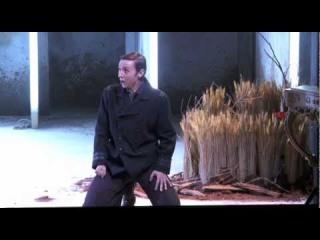Joseph Myslivecek – Antigona (Moritz Caffier) [2011]
Joseph Mysliveček – Antigona (Moritz Caffier) [2011]

1. Antigona (Live) 2:34:21 Ermione – Raquel CAMARINHA Antigona – Rosa Elvira SIERRA Creonte – Giovanni COLETTA Euristeo – William LOMBARDI Learco – Annina HAUG Alceste – Nathalie COLAS Szeged Symphony Orchestra Moritz Caffier – Conductor Musical drama in three acts Libretto by Gaetano ROCCAFORTE Armel Opera Competition at Szeged, Hungary 2011
Josef Mysliveček and his identical twin brother Jáchym were born to a well-to-do miller in Prague. Both sons attended Charles University in Prague, but Josef Mysliveček soon dropped out due to his poor grades. Josef pursued the family business for the next decade, abandoning his miller’s trade to become a musician. In 1763, he traveled to Venice to study composition,and scored significantly with his first attempt at opera, Semiramide, at Bergamo in 1765. His Il Bellerofonte was a great success in Naples, and led to a number of commissions from Italian theatres. In 1770 he met the young Wolfgang Amadeus Mozart in Bologna, where Mysliveček was a member of the Accademia Filarmonica. “He exudes fire, spirit and life”, wrote Mozart in a letter home. Similarities in his musical style with the early galant works of Mozart have often been noted. Mysliveček’s fame spread outside Italy: a number of his works were performed in Munich in the 1770s. For the court of Portugal his operas were carefully copied out in longhand, for performances and the collection at the Ajuda library, where eighteen scores are preserved today, the largest collection anywhere. His final operas were unsuccessful, however. He died at the age of 43, impoverished, of syphilis in Rome; shortly before his death he had his nose removed, hoping in vain that this operation would cure his venereal disease. He is often described as the father of Czech opera. Certainly he was the first of his compatriots to become a famous operatic composer; but his operatic idiom had no Czech characteristics, instead sharing more in common with Italian opera seria. For the better part of posterity, he is regarded as a classical music “character” more so than as a classical musician;. Mysliveček himself was the subject of a saucy 1912 opera by Stanislav Suda, Il divino Boemo. The first thematic catalog of Mysliveček’s work did not appear until 1999, and although it was his 25 operas that made him famous during his lifetime, his finest contributions were made to the field of oratorio.
SYNOPSIS
The opera is the sequel to the well known story of Sophocles’ Antigone. Antigone doesn’t end her life, instead flees into a forest nearby. She is already married at the time, expecting the child of Euristeo, son of the tyrant Kreon. Whilst Antigone is on the run the child disappears, and is at first adopted by a shepherd, but later – brought up by Kreon’s sister, who tries to keep the child’s origin a secret.
Trying to fulfill a prophecy – and believing his daughter-in-law to be dead – oppressor Kreon decides to marry off his son once again, and singles out Ermione (Antigone’s daughter) as the bride-to-be. He asks Apollo’s priestesses to send one of their numbers to be present at the wedding. Their chosen representative is no other than Antigone, who joined their order previously. Antigone considers her call to be God’s mission that allows her to take her revenge on the Theban tyrant. That is when all learn that Euristeo’s second wife is indeed his very own daughter. --- armelfestival.org
download (mp3 @320 kbs):
salefiles yandex 4shared mega mediafire zalivalka cloudmailru uplea








